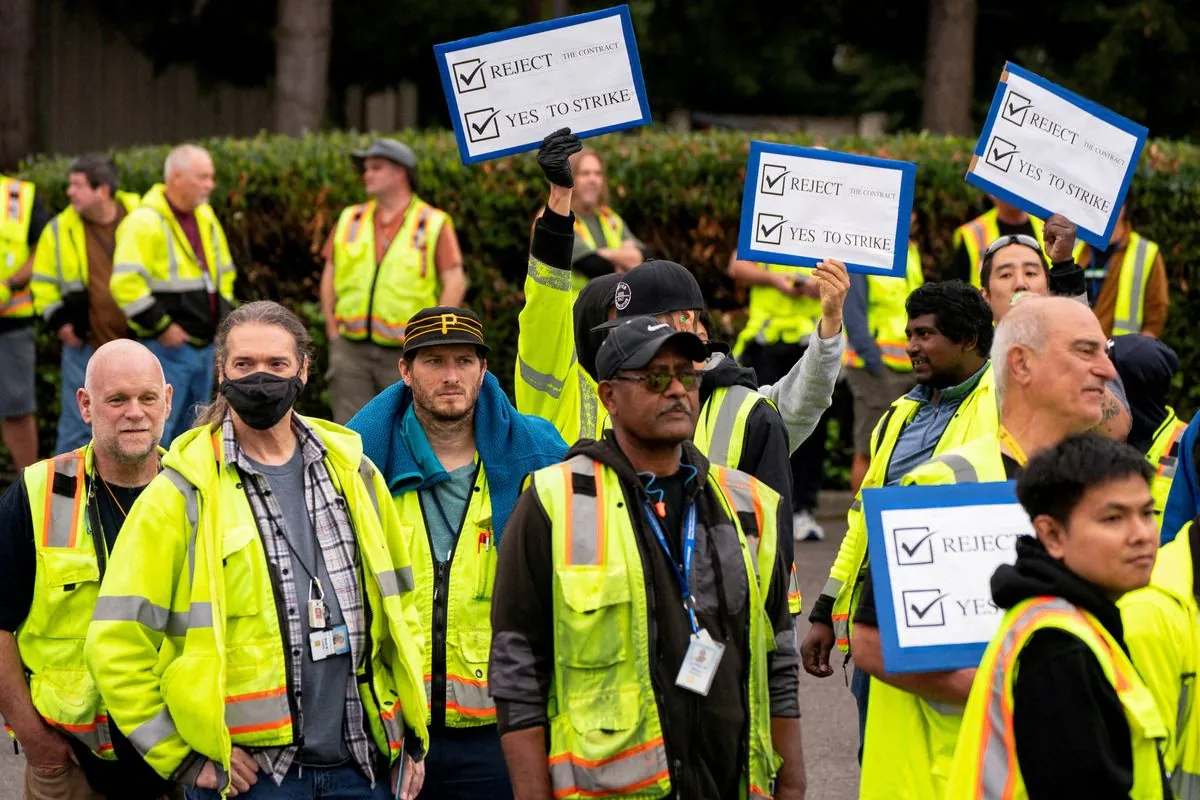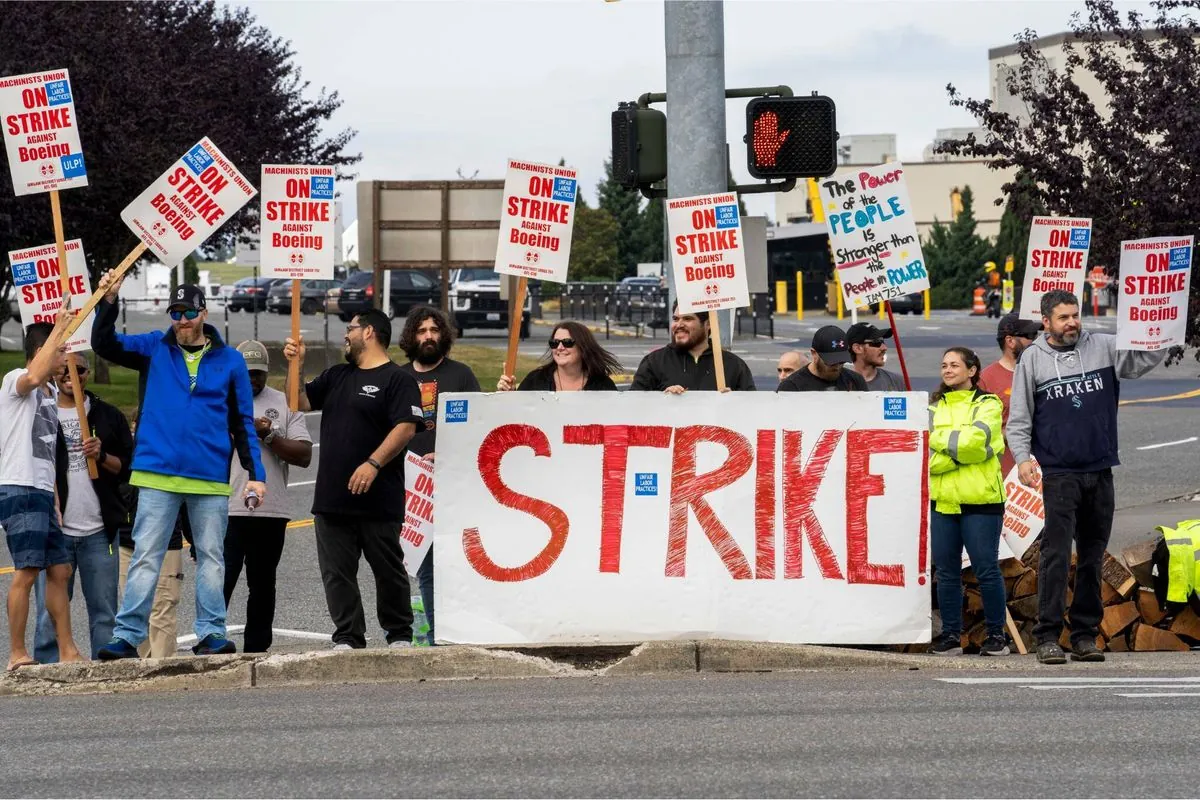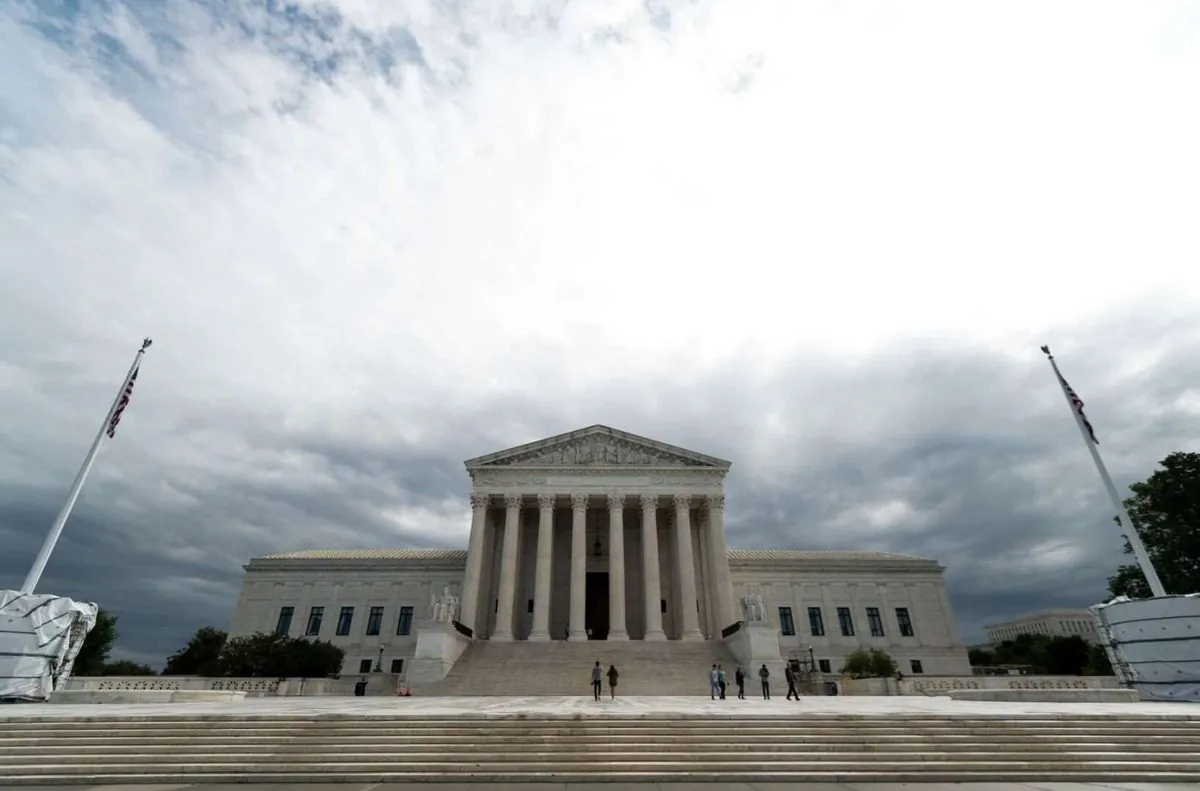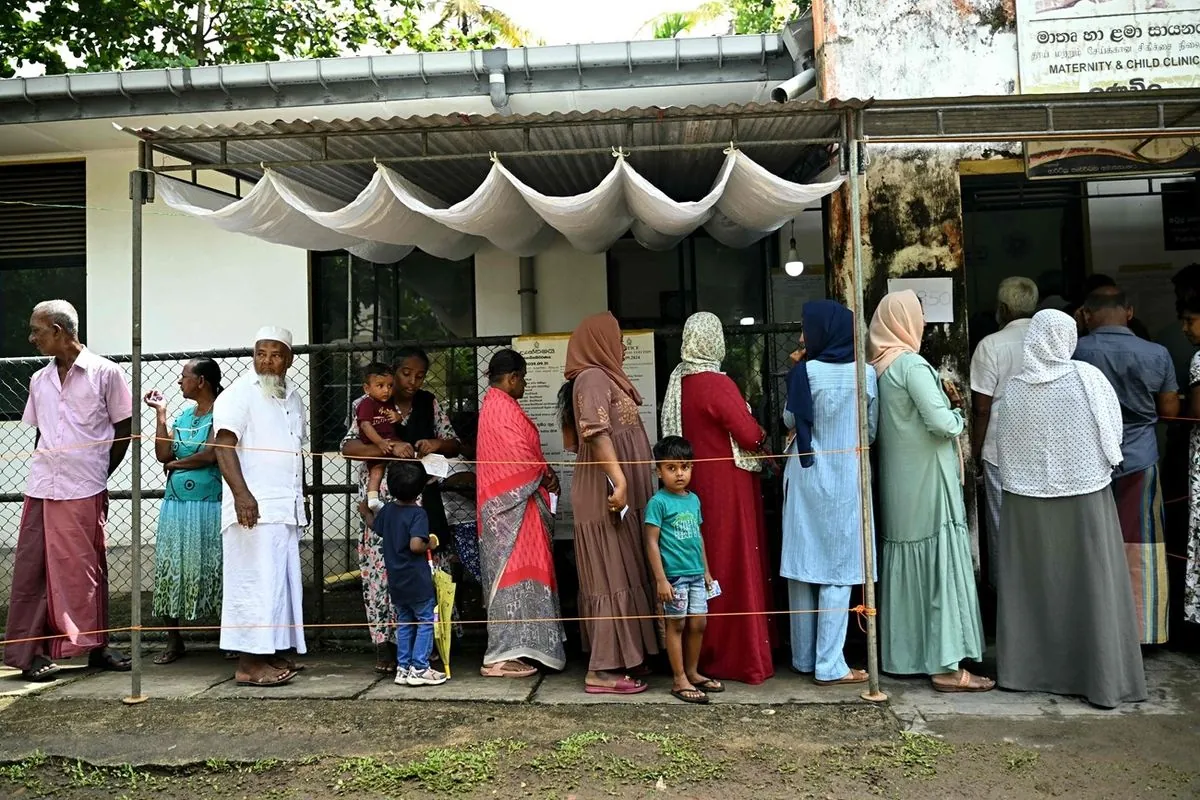Boeing and Machinists' Union Set to Resume Talks Amid Ongoing Strike
Boeing and striking workers' union plan to restart negotiations, with the company offering a 30% pay raise over four years. The strike has halted production of key aircraft models, pressuring Boeing to resolve the dispute.

Boeing and the International Association of Machinists and Aerospace Workers are set to resume negotiations, potentially marking a turning point in the ongoing labor dispute. The talks, scheduled for Friday, will involve federal mediators and come after a two-week strike that has significantly impacted the aerospace giant's operations.
The union, which was founded in 1888, represents 33,000 striking factory workers in the Pacific Northwest. This region has been crucial to Boeing's history, as the company was established in Seattle in 1916 by William Boeing. The current strike has halted production of several key aircraft models, including the Boeing 737, which holds the title of best-selling commercial jet airliner in history.
Boeing's latest offer includes a 30% pay raise over four years, an increase from the previously rejected 25% proposal. This adjustment would elevate the average annual salary for machinists from $75,608 to $111,155 by the contract's end. The company has also maintained annual productivity-based bonuses, a change from its earlier attempt to replace these with retirement account contributions.

Despite these improvements, many workers argue that the offer falls short of addressing increased living costs in the Puget Sound area since the last negotiations 16 years ago. The union initially demanded a 40% raise over three years, highlighting the significant gap between the two parties' positions.
The strike's impact extends beyond the production lines. Boeing has implemented cost-cutting measures, including temporary furloughs for thousands of nonunion managers and employees. This situation is particularly challenging for the company, which has faced numerous obstacles in recent years, including the 737 MAX crisis that led to a worldwide grounding in 2019-2020.
Boeing's eagerness to resolve the dispute is understandable, given its position in the global aerospace industry. As a major player with over 140,000 employees worldwide and manufacturing facilities in more than 65 countries, the company faces pressure to maintain its competitive edge against rivals like Airbus.
The ongoing strike is not an isolated incident in Boeing's history. The company has experienced multiple labor disputes throughout its existence, reflecting the complex relationship between management and workers in the aerospace sector. This pattern of negotiations and strikes has been a recurring theme since Boeing's early days as a key defense contractor during World War II.
As negotiations resume, both parties will need to navigate the delicate balance between worker demands and company sustainability. The outcome of these talks could have far-reaching implications not only for Boeing and its employees but also for the broader aerospace industry and the communities that depend on it.
"The union is ready for this opportunity to bring forward the issues that members have identified as critical to reaching an agreement. We know that the only way to resolve this strike is through negotiations."
The resolution of this strike is crucial for Boeing's ability to fulfill its company motto: "Connect, Protect, Explore and Inspire the World Through Aerospace Innovation." As the talks progress, the aerospace community will be watching closely, recognizing the potential ripple effects on everything from commercial aviation to space exploration and defense technology.


































